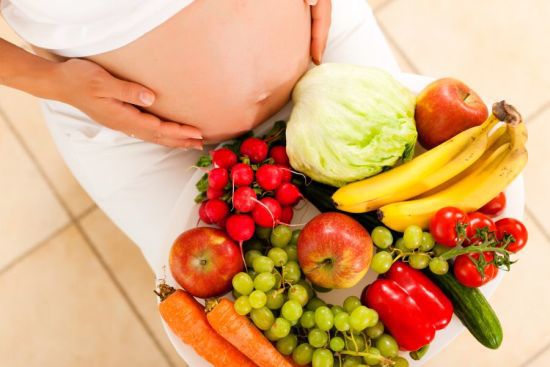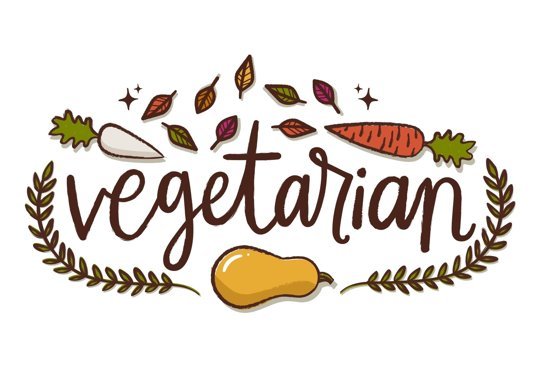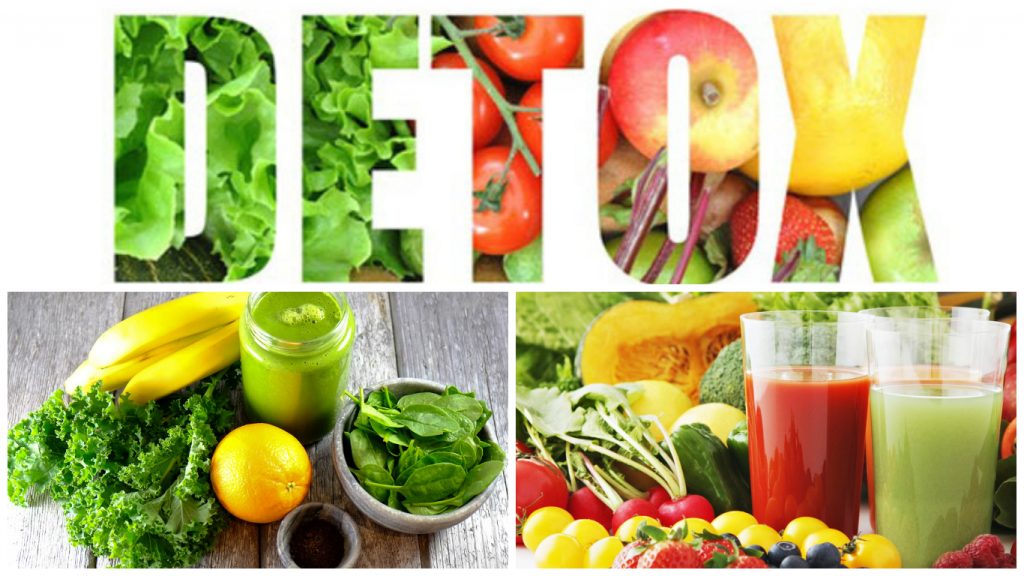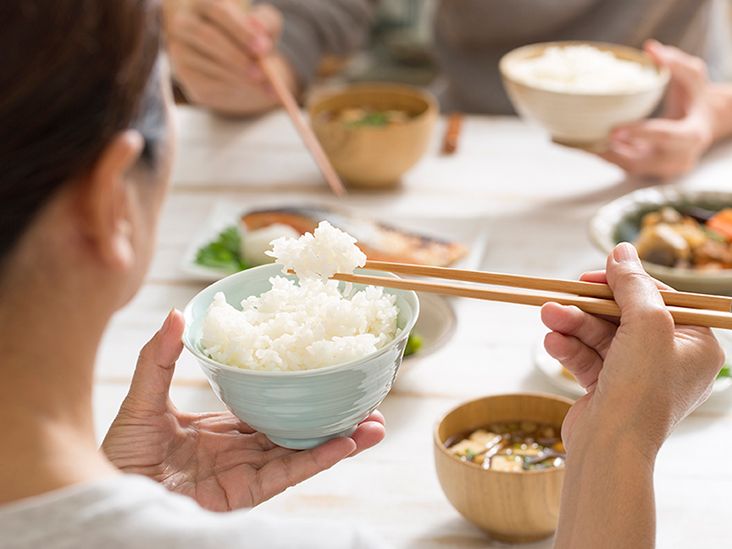Pregnancy is a life-changing experience, and you've got to be armed with the right nutrition to take it on!
For many moms-to-be, pregnancy is the time to rest, relaxation, and pampering and while for some, it may be stressful, especially if the pregnancy involves medical complications. Either way, it is a turning point in your life, physically, mentally, and emotionally. And food is an important part of this journey which requires a lot many changes in the diet, which has to be rightly balanced so that you are eating right for your belly and your baby.
A nutritious, balanced diet through pregnancy is important not only to maintain maternal nutritional needs, but also for the development of a healthy fetus. Remember, nutrition at this time needs to cater to the continuous adjustments in maternal body composition and metabolism.
The number of calories you will need to consume in addition to your regular diet is just 150 Kcal in the first trimester and 350 Kcal in the second and third. These surely need to be healthy calories, not empty calories. A clinical dietician will help you navigate the distribution of calories, but do keep them in check, as your maternal obesity puts you at risk for other serious medical conditions such as gestational diabetes. It may also put your baby at risk for future obesity and
other diseases.
Similarly, if you have morning sickness, you may not feel the urge to eat, and you may be underweight. In this case make each calorie count check, with nutritionally rich foods. Ensure that total weight gained throughout your pregnancy is between 12 and 14 kg. Cut down on refined sugar, and while ghee and butter are okay if you are not already overweight, avoid binging on them.
When it comes to pregnancy diet, there are certain foods that need to be definitely avoided. Foods that are too high in mercury or Vitamin A can pose a health risk to your baby, as can foods that are known to cause food borne illness such as Listeriosis and Salmonella poisoning. List of foods that are right for you and your baby.
For Boosting Your Baby Brain And Your Own Health:
Eat: fish, vegetable oils, nuts (especially walnuts), flax seeds, flax seed oil, dark leafy vegetables
Why: These are rich sources of Omega-3 fatty acids, an important component in boosting the development of the brain formation in the fetus, especially in the second half of pregnancy. According to the Harvard School of Public Health, US, Omega-3 is an integral part of the cell membranes and forms the building blocks of the fetal brain. While fish does contain mercury, US guidelines stipulate that two servings of fish in a week is safe. If you are not able to eat fish, ask your doctor if you should have a fish oil supplement. The two most beneficial forms of Omega-3s come from aquatic sources. But if you are vegetarian, you could try the other sources as well. This essential fatty acid is also known to reduce cholesterol, hence blood pressure.
For The Building And Strengthening Of Bones, For The Baby And You:
Eat: milk and dairy products, ragi (finger millet), broccoli, spinach
Why: To fulfill its own bone development requirement, the fetus will derive its calcium from the mother, whether or not the mother is getting adequate calcium herself. The National Institute of Nutrition has set the calcium needs for pregnant women and nursing mothers as double compared to non-pregnant women. You will need 1,200 mg per day. Two glasses of milk will give you approximately half the requirement. You can derive the rest from the other sources. Also make sure you get some sun, preferably in the morning, when it is not too warm, to help create vitamin D, necessary for good bone health.
Up Your Immunity:
Eat: colourful fruits and vegetables; probiotic foods such as yogurt
Why: Pregnancy is a time when you want to be safe and not catch any infections, especially those that can harm the fetus. Fruits and vegetables are antioxidant-rich. They have phytochemicals that naturally occur in plants, protecting them against infections. They'll help you do the same. Each colour gives a different benefit, so eat the rainbow through the week. Probiotic foods help maintain gut health. Set your own yogurt, as this contains many more 'good, healthful' bacteria than store-bought varieties.
For The Prevention Of Birth Defects In Baby:
Eat: legumes, green leafy vegetables, citrus fruits, nuts, beans
Why: Legumes include lentils, peas, beans, chickpeas, soybeans, and peanuts. The group is a rich source of folic acid, which helps in prevention of neural tube defects (birth defects of the brain, spine or spinal cord). Folate is one of the B-vitamins (B9), especially important in the first trimester. Your doctor will provide you with supplements, but you can also make sure you get the vitamin in your diet. Folic acid works closely with vitamin B12, to make red blood cells and make iron work properly in the body. If possible, eat organic, so you're not taking in too many chemicals.
For Overall Growth And Development:
Eat: small amounts of red meat, chicken, spinach
Why: Iron is an essential nutrient, and is needed for fetal and placenta growth, as well as for the development of the mother's own tissue. About 50-70% of Indians are anemic, and this is a cause of serious concern. Your doctor will prescribe additional iron in the form of a supplement; however, you can also get it in the diet.
Foods to be avoided when you're pregnant:
Avoid unpasteurized milk.
Avoid Alcohol.
Avoid raw or undercooked meat, fish and eggs.
Avoid unwashed vegetables and fruits.
Avoid raw sprouts (Eating raw sprouts increases your risk of salmonella poisoning, which causes fever, vomiting and diarrhea. Be sure to cook sprouts thoroughly.)
oid excess of caffeine.
The most common dietary problem that every vegetarian comes across is protein deficiency. It was a widely acknowledged fact that animal products are the best protein sources. However, it is no longer so, and vegetarians everywhere can now rejoice!
Here are the 13 best sources of protein for vegetarians:
Green peas: Green peas are legumes, which are a very good protein source. They contain 7.9 grams of protein per serving.
Quinoa: Grains usually contain very little protein, but quinoa is unique. It contains 8 grams of protein per serving; and contains all nine important amino acids that your body needs for repair and growth.
Nuts and nut butter: Nuts are a good source of proteins and healthy fats. However, eat them with caution, as they do contain 160 calories per serving. Butter made from nuts like peanut butter and almond butter is also a good source of protein.
Beans: Beans are available in a variety of colours and shapes, but all of them have one thing in common that is the high level of protein.
Chickpeas: Chickpeas are also from the legume family, so they also contain high amounts of protein; 7.3 grams of protein in only half of a serving.
Tofu and tempeh: Tempeh and tofu are both soy products and they have the highest amount of vegetarian proteins, about 15-20 grams per serving.
Edamame: Edamame or soybean is excellent for snacking. They contain 8.4 grams of protein in just half a cup.
Leafy greens: Vegetables usually do not contain much protein, but eating green vegetables will significantly add to your protein consumption. For example, you can eat one cup of cooked broccoli as that contains 8.1 grams of protein.
Hemp: Blend hemp seeds in smoothies or baked goods to get your daily dose of protein. Hemp contains 10 grams of protein per tablespoon.
Chia seeds: Chia seeds contain 4.7 grams of protein per two tablespoons, making them excellent sources of protein.
Seitan: This is a meat substitute made from wheat gluten and it contains 36 grams of protein per serving (about half a cup).
Non-dairy milk: Milk made from soy (best non-dairy protein source), almond, rice and hemp are good dairy substitutes.
Unsweetened cocoa powder: This will surprise you, but bitter cocoa contains nearly 1 gram of protein per serving (1 tablespoon)!
Given that detox diets won't rid the body of impurities or lead to real weight loss, are there any benefits of using them?
The only thing one can say positively is that:
A detox diet may encourage you to eat more nutritious foods. Some detox diets recommend nutrient-rich foods like:
Lemons
Green tea
Fruit juices
Colorful fruits and vegetables
All of these could, in part, increase your intake of certain nutrients. Some of which might help the body deal with incoming toxins or offer other health benefits.However, a three day detox diet won't move the dial on toxicity (or health) anywhere near as much as maintaining a healthy lifestyle the other 362 days of the year.
Disadvantages of detox diets:
For most people, the disadvantages of a detox diet are much more numerous than the potential benefit.
Detox diets are often inconvenient: Any diet will take some effort to organize, and detox diets are no exception. Ironically, you'll probably never put as much work into eating less as you do into a detox. People with limited time, money, and resources won't enjoy juicing seven kgs of veggies and fruits each day. Especially if they're feeling weak, listless, or dizzy, some of the most frequently reported side effects of juice cleanses.
Detox diets are often too low in energy: Most juice diets are extremely low in calories. In fact, some people argue that juicing is just a way to starve and feel good about it. With the low energy intake you'll often notice other things slowing down, you may feel colder, or sluggish, or notice digestion taking a while. Detox diets may cause blood sugar swings that is cleansing built on fruit juices can cause major swings in blood sugar, making them downright dangerous for people with diabetes, and potentially risky for many others.
Detox diets can be tough on your GI tract: The fruit juices used for many detox diets contain very little fiber. Fiber is a cleanser. It's like a street sweeper for the GI tract; it slows down digestion and aids absorption of nutrients. There is no credible information saying that the GI tract does better when it doesn't get solid foods (unless the GI tract is damaged). Instead, the gut does well with probiotics, glutamine from protein rich foods, and fiber. You'll struggle to get all of these on a cleanse.
Detox diets are often low in essential fats: While some less extreme detox diets allow things like nuts and seeds, hard core cleanses typically eliminate most fat-containing foods, even healthy fats. Extreme variations in fat intake i.e. swinging from high (pre-cleanse) to low (cleanse) to high (post-cleanse celebration) to low (back on the cleanse train again) can cause trouble for organs that process dietary fats, like the gallbladder.
Detox diets may cause electrolyte imbalances: Many cleanses involve drinking a lot of liquid (such as water, herbal teas, and/or juices) while removing many foods that contain salts. Some "detox diets" also suggest using diuretic supplements. This can cause potentially dangerous imbalances in your electrolytes, charged chemicals found in fluids throughout your body. The imbalance is even more likely if overhydration is combined with low energy intake.
In fact, there's a name for this phenomenon, well known to health care providers who deal with extreme anorexia, malnutrition, or any medical condition with severely restricted food intake that is refeeding syndrome. To keep operations running when nutrients and energy are low and electrolytes are disrupted, the body may adjust its metabolic environment (for instance, it may deplete cells of minerals to keep blood levels of those minerals stable). Not only can this affect health during the detox diet, it can cause potentially cause serious problems when a person on a detox diet (especially a longer-lasting one) starts eating normally again.
Detox diets can create a cycle of restrictive eating and deprivation:
Detox diets, the entire concept of "cleansing", in fact can enable feast-or-famine style eating patterns:
The detox diet starts tomorrow, so I'll eat a bunch of "toxic" foods tonight.
On the detox diet now. Not allowed any stuff I enjoy.
The detox diet ends tomorrow, so I'll get set to eat all those "toxic" foods I missed! And so on.
Recognize that thought pattern? It's the classic dieter mentality. On the wagon, off the wagon, on the wagon, off the wagon.
It's always more harmful than helpful. When you think and eat this way:
You never learn to find the sane middle ground.
You never learn to prepare real food and real meals that are both nutritious and delicious.
You're always in "all-or-nothing" mode. (Usually getting "nothing", because "all" is really, really hard.)
Worst of all you never feel truly happy with any of your choices.
Fortunately, the body "cleanses" itself, if we can't ever avoid toxins, doesn't it then make sense to do some sort of detox? Not really. That's because our bodies have very robust detoxification systems. Our major organs of detoxification include are:
Digestive tract;
Kidneys;
Skin;
Lungs;
Liver,
Lymphatic system;
Respiratory system;
These systems break down chemicals (toxic or otherwise) into other form, which we can eliminate via the toilet, sweat, or breathing. And the body seems to do a pretty good job of this when placed in a balanced (i.e. healthy) environment.
Take Home Message
The idea that you can speed up and improve your body's detox pathways by drinking detox water is nonsense. That said, it is still a healthy drink with a few health benefits. Nevertheless, you could probably get most of these benefits from drinking regular water. However, people often find plain water boring. If infusing your water with fruits and vegetables means that you drink more water and less sugary drinks, then it can only be a good thing.
Rice though used as a staple in many parts of the world, is still one of the most controversial and misunderstood foods. There are a number of myths associated with this food and now’s time to debunk them. But let’s look at a few facts about rice first.
Rice contains high carbohydrate content. A cup of white rice contains 35gms of carbohydrates
A cup of white rice contains 165 calories
A cup of white rice contains 3-4 gms of proteins
Rice, like all other carbohydrates, ultimately gets broken down into glucose inside the GI track. And glucose is the ultimate source of energy for the human body. There are also two different types of rice, white rice and brown rice. The difference between the two, especially for our health, is substantial.
White rice has very little fibre but brown rice has more fibre and also more vitamins and minerals. Whereas, brown rice has substantial amounts of minerals, which are not present in white rice, such as
Phosphorous
Magnesium
Selenium
Manganese
Brown rice contains 3 gms of fibre while white rice has only 0.6 gm. This is a substantial difference too.
Busting Myths
Myth - Rice Contains Gluten: The fact is that rice is gluten-free and it does not cause allergies that are associated with other grains. Gluten high foods are bad for diabetics and those trying to lose weight.
Myth - Rice is fattening: Rice is, in fact, low in fats and is also cholesterol free. Because it contains carbohydrates, rice is a good source of energy.
Myth - Rice has no protein: Protein is the second-most abundant nutrient found in rice. A cup of white rice contains 3-4 gm. of proteins, as a matter of fact. The quality of the rice protein is also very high compared to other grains.
Myth - Rice has high amounts of salt: Rice contains low amounts of sodium.
Myth - Eating rice for dinner makes one fat: High carb foods like rice should be eaten at night as they are metabolised into glucose, our energy stocks. The glucose in the blood is more readily converted into energy at night. Rice and other grains should be avoided during the day as the glucose more readily converts into fat.
Myth - Rice is difficult to digest: Actually, the reverse is true. Enzymes secreted in the human digestive tract are especially good at digesting rice. White rice undergoes a processing system where the germ layers, bran and husk are all stripped off. By doing this, white rice loses much of the nutrition too.
The rice of choice for all of us, therefore, should be brown rice, compared to white rice. This way we shall be getting the carbs for energy and proteins, fibre, vitamins and minerals to stay healthy.
It is time for you to relax and enjoy the few days that you have before you deliver your baby!
When you are in your 9thmonth of pregnancy, you will find that there are quite a few challenges that need to be faced. Since it is the last month, you will no doubt feel heavy any more often than not, quite uncomfortable. There is also the excitement and anticipation of the coming bundle of joy! Could there be a more exciting time than this stage of your pregnancy?
What Should Be Included In Your 9th Month Of Pregnancy Diet:
At this stage, your baby’s development is almost complete. Her weight will increase rapidly and her brain and lungs will continue to mature. While you can still indulge in some guilty pleasures at this stage, it is important for you to remember to be cautious about what you eat. Your digestive system can be affected due to the rapid weight gain, which is why you should continue with the balanced and nutritious diet you followed in the early months but in larger servings. Here is a list of foods that should be in included in your 9th month of pregnancy diet:
Grains And Whole-Grain Breads: 6 to 11 servings per day
Fruits: 2 to 4 servings per day
Vegetables: more than 4 servings per day
Dairy Products: 4 servings per day
Foods Rich In Protein: 3 servings per day
Hydration: Minimum 2 litres of pure water every day
Foods To Eat During This Stage Of Your Pregnancy:
When you eat healthy and nutritious foods, you guarantee yourself a problem-free pregnancy. Discomforts like constipation and heartburn are prevented when you eat a balanced diet. This in turn helps in your baby’s proper development and growth, resulting in a healthy baby who has no complications. Include the following in your diet:
Fiber-Rich Foods: Such as land and sea vegetables, fruits, whole grain breads, cereals, dates, etc.
Iron-Rich Foods: Such as fish, chicken, egg yolk, broccoli, lentils, peas, spinach, berries, soybeans and dried fruits like prunes, raisins, etc. Do consume a minimum of 3 servings of iron-rich foods on a daily basis.
Calcium-Rich Foods: Calcium retention peaks during this stage of your pregnancy which is why it is important for you to eat plenty of calcium-rich foods. Such foods include collard greens, dairy products, oatmeal, almonds and sesame seeds.
Vit C-Rich Foods: Foods rich in vitamin C are also important during your 9th month of pregnancy. Eat plenty of citrus fruits, tomatoes, strawberries, broccoli and cauliflower.
Folic Acid-Rich Foods: To avoid birth defects such as spina bifida, consume foods that are rich in folic acid content. Green leafy vegetables and legumes like lima beans, chickpeas and black-eyed peas should be a part of your daily diet.
Vit A-Rich Foods: Spinach, carrots, sweet potato, cantaloupe and other rich sources of vitamin A should also be included in your diet during this stage of your pregnancy.
Foods To Avoid During The 9th Month Of Your Pregnancy:
The foods that you have avoided throughout your pregnancy are the same as what you should omit from your diet during ninth month of pregnancy. Here are the foods that you should definitely stay away from during this time:
Caffeine: Should be avoided. However, if you do drink it in any form, do not exceed 200 mg daily. Chocolate also contains caffeine, so limit your intake of it as well.
Alcohol: It is widely known to be dangerous during pregnancy. To prevent mental retardation, premature delivery as well as a wide range of birth defects, it is important that you abstain from it completely throughout your pregnancy.
Saccharine: It is a sweetener that should be completely removed from your diet during your pregnancy. Indulge in your sweet tooth by opting for organic fruits and homemade candies.
Soft Cheeses: These are still a non-no. This type of cheese is normally not pasteurized and could lead to an infection, so stay away from it.
Raw Sea Food: It is also important to remember to avoid sushi (most of which is prepared with raw fish as the main ingredient). Also other seafood that is served raw, such as oysters.
Tobacco: It is dangerous during pregnancy. If you are a smoker or if you chew tobacco, it is important that you give it up not only in the 9th month pregnancy diet but throughout your pregnancy. Your child’s development and growth can be adversely affected if you take tobacco.
Supplements That Can Be Taken During Pregnancy:
Your nutritional requirements will be met when you eat a healthy and balanced diet. If you are not getting enough nutrients, your doctor will prescribe the following supplements to meet your needs:
Calcium Supplement: If you are not getting enough calcium from your daily diet, this supplement will be prescribed to you. It is also given to those who suffer from lactose intolerance.
Multi-Vitamin And Multi-Mineral Supplement: This supplement will help in providing you with all the vitamins and minerals that your body needs during this stage of your pregnancy.
Folic Acid Supplement: Folic acid is important to produce healthy red blood cells and also to prevent birth defects. If you are not getting enough of it from the foods you eat, your doctor will prescribe this supplement for you.
Iron Supplement: Experts recommend an iron supplement that contains 27 mg of iron for all pregnant women when they are at the second and third trimesters of their pregnancy.
As you know, the various nutrients that you consume at this time will have a direct effect on your baby’s development and growth. Since you are eating for two, you have a responsibility to eat only the healthiest of foods. This way, you ensure that your baby gets all the required nutrients to be healthy and you also stay strong for labour when the delivery day comes.
So, eat right, preferably organic so that you keep pesticide/fertilizer intake to the barest minimum, and make sure that you get all the proper nutrients that you need for a healthy pregnancy and a strong baby!











